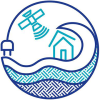Regional entities
Regional entities, such as development agencies or foreign governments, may be interested in the findings of the PILNA programme.
These stakeholders operate with a mandate to support development in the Pacific region, including in education. They might do this with targeted investment or the provision of programmes and interventions for Pacific stakeholders, and they need good data for this.
The student performance data presented in the ‘Performance’ section should, therefore, be of interest. This section outlines student performance by domain (numeracy, reading and writing) and by year level (year four and year six).
Regional entities might also be interested in the comparisons to regional benchmarks, which are described at the end of each of these performance sections (see regional benchmarks for literacy and numeracy performance).
Regional entities could use these data to inform investments and activities that influence student performance in literacy and numeracy.
The ‘Get to know’ section of the report should also be of interest to regional entities. This section presents findings from questionnaires given to students, their teachers and their school leaders (principals or head teachers).
This information gives context to student performance and provides insight into the experiences and environments of students, teachers, and school leaders.
Insights from this information may also be relevant to social policies and areas beyond the performance of education systems. Regional entities could use, supplement, and reference this contextual information to inform investments, actions, and future research that broadly support education or social outcomes.
The overall regional findings and recommendations for PILNA 2021 may also be of interest. Beyond this, however, this report also provides recommendations for regional entities based on the findings for student performance and student, teacher and school experiences and environments.
These are intended to be a starting point for discussions at local and regional levels about whether interventions of any kind are necessary for student performance or the environments of, and experiences within, education systems.
Country-specific breakdowns of these PILNA findings will become privately available to nominated national representatives soon. Representatives from individual countries, typically the heads of their national education systems, will have this information accessible and may share it at their discretion with regional entities for the purposes of local planning and investment.








